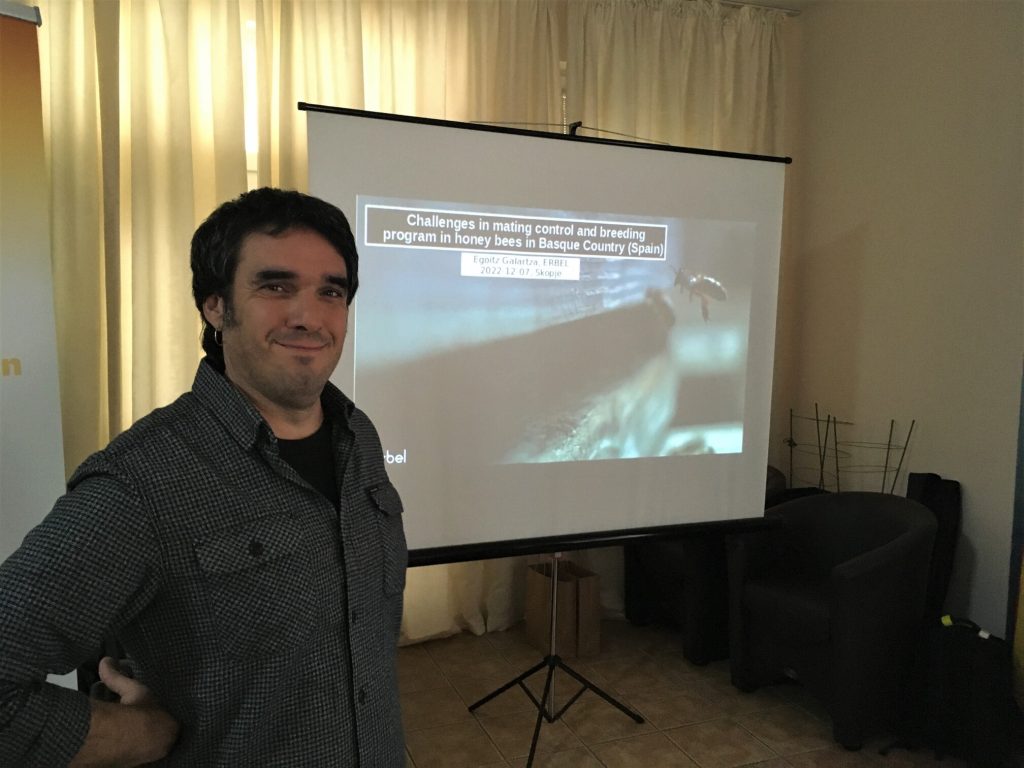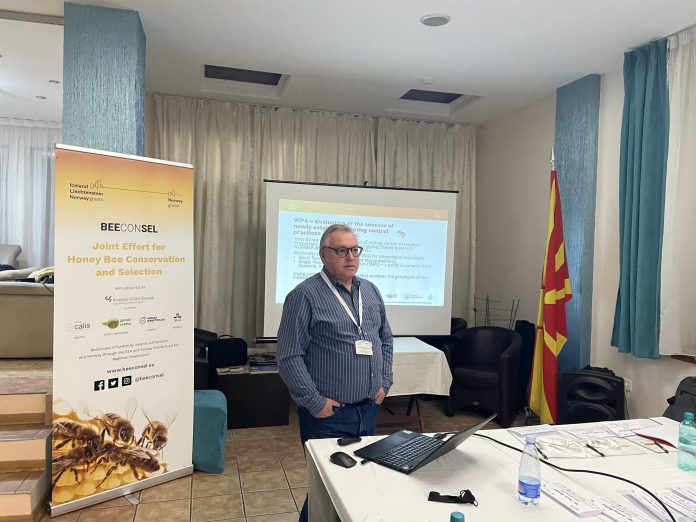BeeConSel training Workshop on Estimation breeding values in honey bees was held in Skopje, N. Macedonia, from Dec 5th to Dec 8th. In the workshop, in total, 28 participants took part from Croatia, N. Macedonia, New Zealand, Norway, Slovenia, Spain and Sweden. The participants were from various stakeholders, e.g. queen producers, professional beekeepers, policymakers, breeding program executors and researchers.
The workshop covered the professional elements of honey bee breeding programs, expected outcomes, organizational challenges and economic consequences, and legal aspects in execution.
In the beginning, the introduction provided information and knowledge regarding the key elements of the breeding program in general and specific aspects of breeding programs in honey bees. Representatives from Croatia, N. Macedonia, Norway, and Slovenia presented their current honey bee breeding programs and challenges. Special attention was given to peculiarities of the estimation and interpretation of Breeding Values, with details on procedures, steps, and examples. The specifics of breeding programs in New Zealand and the Basque Country were presented, as well as mating control and challenges in the execution of the breeding program. Another aspect of the effect of selection and local adaptation on resilience and economic suitability in Apis melifera carnica was also present.

By presenting the economic implication of breeding honey bees, the participants were introduced to various costs for different modalities in the execution of breeding programs in honey bees. Additionally, there was an introduction to the methodology for assessment of the cost of different methods of mating in honey bees.
The representatives from authorities (policy makers) presented the different honey bee breeding national legislations (laws and rules) in Croatia, Macedonia, Norway, and Slovenia. There, it was an open discussion regarding each country’s specific rules and how the regulation of controlled mating in honey bees can be improved as a vital element of the successful breeding program. The discussion was also about how policy incentives can help stability and better execution of the honey bee breeding program.
In the frame of the workshop, a visit to Golden Brick, a private honey bee producer with around 600 colonies, was organized. The participants were introduced to large-scale business concepts in honey bees, where unique products were developed. In addition, they were presented with how they will organize mating control for their needs and commitment to their queen’s production.
Participants had a fruitful discussion and used the opportunity to exchange their knowledge, experiences, and opinion regarding various aspects of mating control and organization of breeding programs in honey bees.
prof. dr. Sreten Andonov


